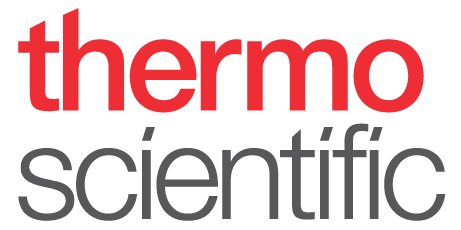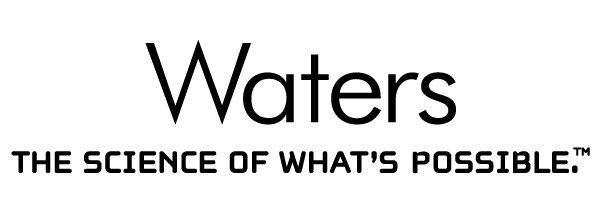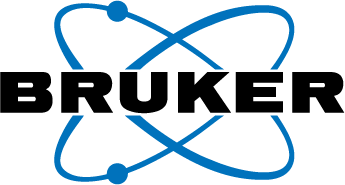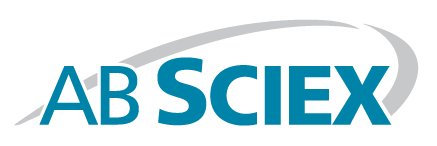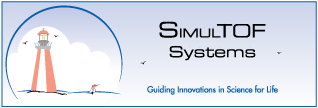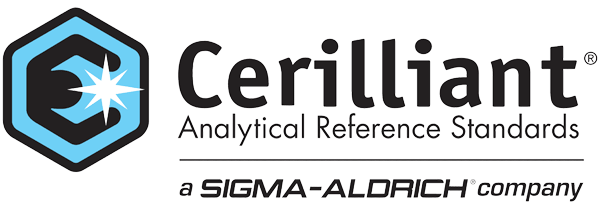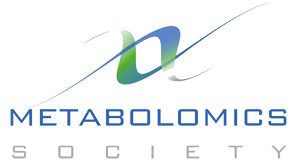MSACL 2014 USSan Diego, CA: March 1-5 |
For Vendors
MSACL US
UNITED STATES 2014
Corporate Workshops (for Vendors)Mon, Tue, Wed after Lunch
|
APPLICATION for a 2014 Workshop |
Corporate Workshops provide an opportunity for MSACL conference attendees to learn more about specific applications or products of interest as presented by sponsoring vendors.
Corporate Workshop slots will be available on Monday, Tuesday and Wednesday running from 7:00 - 8:00 AM and 1:00 - 2:00 PM.
These workshops will take place in the morning Marina 6, Seabreeze and Spinnaker (seating 70 classroom) and in the afternoon in Harbor 1, Harbor 2 and Harbor 3 (seating 200 classroom each). The listed fee includes basic audio/video set-up (projector and screen) and microphone.
These workshops are offered at no charge to attendees. Some sponsoring vendors may request that attendees register, but it is NOT REQUIRED (if there are issues regarding this on-site please contact any MSACL employee). Vendors may, however, provide priority seating to pre-registered workshop attendees if there are space limitation issues.
Workshops will be assigned based on date of application and payment, with selected preference given to Corporate Sponsors.
If you select to apply for two workshops, the second workshop will most likely be scheduled for Wednesday.
Corporate Workshop holders must be registered (Full or Exhibitor Registration) for the conference.
| Workshop Pricing Schedule | Breakfast | Lunch | ||
| Early Bird | Before/On | August 1, 2013 | $1,750 | $3,500 |
| Regular | After | August 1, 2013 | $1,750 | $4,000 |
*Title and summary must be received before January 15, 2014 to make the conference program print deadline.
Workshop Promotion
As a Workshop Sponsor, to promote your event you will be provided ONE (1) use of the email list of attendees that have not opted out of vendor contact.
No distribution of literature or other promotional items at hotel guestrooms, or in any other public or private area of the hotel is permitted.
On the day of your event you will be provided a 6-ft table and an easel on which to place your self-provided poster/foam-core promotional advertisement.
Workshop Assignments
Breakfast Workshops: 7:00 - 8:00 AM
| Location >> | Seabreeze (Seats 70) |
Marina 6 (Seats 70) |
Spinnaker (Seats 70) |
| Monday | Tecan | IsoSciences | DPX Labs |
| Tuesday | Spark Holland | Phytronix
Pre-register | Phenomenex
Pre-register |
| Wednesday | Zef Scientific | Indigo Biosystems |
Lunch Workshops: 1:00 - 2:00 PM
| Location >> | Harbor 1 (Seats 200) |
Harbor 2 (Seats 200) |
Harbor 3 (Seats 200) |
Marina 6 (Seats 70) |
| Monday | Agilent Technologies | Thermo Scientific
Pre-register | Waters | Shimadzu |
| Tuesday | Phenomenex
Pre-register | SimulTOF | AB SCIEX | Bruker Daltonics |
| Wednesday | Sigma-Aldrich | Thermo Scientific
Pre-register | Biotage | IONICS Mass Spectrometry
Pre-register |
Workshop Summaries
|
IsoSciences Day: Monday Time: AM Location: Marina 6
Deficiencies of Deuterium as an Isotopic Label in MS Standards Deuterium is the most frequently used isotope in stable isotope labeled standards. It is generally easy to incorporate and is typically less expensive than synthesizing standards with other stable isotopes such as 13C and/or 15N. However, deuterium suffers from inherent drawbacks that can limit the accuracy or viability in quantification by LC/MS/MS. Among these problems are loss or exchange of deuterium under chemical or MS conditions, ‘messy’ molecular ions and LC or GC co-elution problems. A related issue surrounds the confusion of what exactly is meant by “percent isotope incorporation.” This workshop will focus on these issues and discuss strategies for overcoming these problems by selecting appropriate label location, synthesis methodology and choice of isotope. |
|
Tecan Day: Monday Time: AM Location: Seabreeze
Automated Sample Preparation for Mass Spectrometry Although there have been great advances in mass spectrometry (MS) instrumentation in recent years, its unglamorous counterpart, sample preparation, has not enjoyed the same rate of development. Sample preparation has become a major bottleneck, and the issues associated with manual processing have hindered the uptake of MS innovation in the life science industry. To help overcome this, we will show how the Tecan Freedom EVO®-based end-to-end process automation for even the most challenging protocols will liberate you from the bottleneck of manual sample preparation. We will also discuss the newly released Tecan AC Extraction Plate with TICE™ (Tecan Immobilized Coating Extraction) technology which will revolutionize your sample preparation routine for LC-MS analysis of small molecules, and present you applications examples. |
|
DPX Labs Day: Monday Time: AM Location: Spinnaker
Rapid Sample Preparation using Dispersive Pipette Extraction (DPX) with LC/MS/MS Analyses for Clinical Applications The DPX workshop will highlight more efficient methods for sample preparation by discussing three applications using DPX tips with LC/MS/MS analyses. |
|
Agilent Technologies Day: Monday Time: PM Location: Harbor Ballroom 1
Ultrafast SPE-QTOF Methods for Analyzing Panels of Drugs in Urine and Leading Proteomics into the Age of Automation: High-throughput Protein Sample Preparation for Mass Spectrometry Applications Enabled by the AssayMAP Bravo Automation Platform In this workshop 2 speakers will present SPE and Automated Sample Preparation and how these approaches increase throughput for LCMS Analyses. Dr. Vaughn Miller will discuss Ultrafast analytical methods for drug panels in urine with as many as 35 analytes that have been successfully developed using a SPE-QTOF system using RapidFire High-Throughput MS System. Dr. Jason Russell will discuss the challenges with protein/peptide sample preparation for LCMS analysis. To address these issues routine sample handling tasks common to LC/MS proteomic workflows have been automated using the Agilent AssayMAP Bravo platform and its suite of proteomic tools engineered to bring reproducibility, scalability, protocol portability, and ease-of-use to LC/MS sample preparation. |
|
Thermo Scientific Day: Monday Time: PM Location: Harbor Ballroom 2
Pre-Register for this Workshop In this workshop three speakers will describe how they utilized the latest LC/MS technologies to unravel common challenges faced by clinical research and forensic toxicology labs. Dr. Roy Peake will discuss a multisite study designed to determine the effect of standardized LC/MS protocols on variability of results obtained in analysis of immunosuppressant drugs. Dr. William Clarke will describe a single injection method to positively identify and quantify triclosan, parabens and PFCs using high resolution accurate mass (HRAM) MS instrumentation. Dr. David Kasper will discuss TurboFlow technology, including staggered injection and high-resolution accurate-mass LC-MS for high-throughput analysis compounds. |
|
Waters Day: Monday Time: PM Location: Harbor Ballroom 3
Improving Steroid Hormone Measurements: Addressing the Challenge with LC/MS For decades, laboratory physicians and research scientists have recognized that conventional antibody-based immunoassays have limitations when measuring sex steroid hormones, especially when used to assess new treatments or to address new research questions. Today, LC/MS based solutions are being deployed by clinical researchers for routine sex steroid hormone measurements. Properly implemented, routine LC/MS assays overcome the recognized limitations of immunoassays and may exceed other performance criteria. Join us for this informative workshop to learn about the history of the Endocrine Society’s and CDC’s path toward excellence in steroid hormone analysis and how two laboratories have implemented Waters technologies to develop tests for steroid hormone analysis. |
|
Shimadzu Day: Monday Time: PM Location: Marina 6
Prepare Your Laboratory for the Future - Next-Generation Plasma Collection Technology, Mass-Linked Immuno-Selective Analysis and Ultra-Fast Mass Spectrometry. This workshop will provide your organization with facts and critical lessons needed for the successful adoption and integration of “lab-on-a-card” plasma collection technology, ultra-fast & automated protein digestions and ultra-fast mass spectrometry in your laboratory. You will discover a new Noviplex Card technology (Novilytic Labs) that enables rapid plasma generation in just minutes without the need for venipuncture, centrifugations, etc. We will also introduce Perfinity Workstation and integrated Digestion Platform technologies that enable automated, reproducible protein digests on a sub-minute timescale, greatly improving the applicability of peptide based SRM assays. These technologies, used with ultra-fast mass spectrometry save your laboratory time, money and resources and will greatly improve data reproducibility and quality. |
|
Phytronix Day: Tuesday Time: AM Location: Marina 6
Pre-Register for this Workshop This workshop is aimed at providing information in regards to new methods that will increase your sample analysis speed. Our speakers will offer valuable insight and share with you new ways to improve your workflows using LDTD-High Resolution MS and new developments in forensic toxicology using the LDTD Ion Source. We will present a validated method for the analysis of 13 benzodiazepines using LDTD-MS/MS in under 10 seconds per sample. We will discuss elements of sample preparation and the analysis steps of the LDTD. We will also compare cross-validated data with gold standard analysis method by LC-MS/MS. All compounds are analyzed simultaneously in 6 seconds per sample. |
|
Spark Holland Day: Tuesday Time: AM Location: Seabreeze
Automated dried blood spot analysis with FTDTM-SPE-MS/MS – no punching, no hematocrit issue Quantitative dried bloodspot analysis may suffer from variations in hematocrit (Ht) causing unacceptable inaccuracy and imprecision. Full-spot desorption avoids Ht effects on spot size, but Ht effects on analyte recovery may still remain. The best strategy to reduce this effect is to maximize the recovery of analytes from a dried blood spot. Flow Through Desorption (FTDTM) technology with solvent heating appears to be very effective, especially for immunosuppressant drugs. A completely automated DBS method based on SPE–MS/MS analysis, independent of the blood Ht value, will be presented. The DBSA is a front-end for any LC–MS/MS system and has card capacity from 96 (standard) to ~500 (extended). A built-in camera provides sample tracking, spot locating, and recording of the desorbed spot area. Both full-spot and partial-spot analysis are supported. |
|
Phenomenex Day: Tuesday Time: AM Location: Spinnaker
Pre-Register for this Workshop The advent and rapid popularity of the MS detectors have led to shorter and narrower columns and subsequently faster chromatographic run times. This presentation covers a brief discussion of chromatographic media, bonded phases and method development in connection with LC/MS and LC/MS/MS technology and requirements. |
|
Phenomenex Day: Tuesday Time: PM Location: Harbor Ballroom 1
Pre-Register for this Workshop Solid Phase Extraction (SPE) presents a versatile and reliable sample preparation procedure in many clinical laboratories. This workshop presents an in-depth discussion of the various SPE support media, bonded ligands and their interaction mechanism. Additional tools and guideline will be provided to aid basic and successful SPE method development. |
|
SimulTOF Day: Tuesday Time: PM Location: Harbor Ballroom 2
Accurate determination of protein profiles in complex biological samples by MALDI-TOF MS Protein profiling has been investigated for various diagnostic applications such as cancer detection, biomarker determination and pathogen identification (approved by the FDA last year). Despite enormous effort and expense, biomarkers for other diagnostic applications have not been approved. The difficulties inherent in correlating the mass spectrum of a complex mixture with a biological state are well-known. These include variations in sample acquisition, processing, and preservation; reproducibility of mass spectrometric data acquisition and processing; and unrelated biological variations. SimulTOF’s focus is minimization of instrumental variations. The SimulTOF 100 Linear MALDI-TOF, operating at laser rate of 5 kHZ, provides high sensitivity and reproducibility. Use of this technology on biological fluids, with and without purification, as well as in tissue imaging, will be presented. In addition, we will present a new approach to spectral comparison. |
|
AB SCIEX Day: Tuesday Time: PM Location: Harbor Ballroom 3
(1) LC/MS/MS sample prep automation, workflow integration and data flow for the clinical research laboratory No summary submitted. |
|
Bruker Daltonics Day: Tuesday Time: PM Location: Marina 6
Recent Developments in the MALDI Biotyper for Microbial Identification and Beyond and Development of a SISCAPA MALDI Workflow for Biomarker Development and Routine Measurement Routine identification of microbes using MALDI-TOF mass spectrometry is widely accepted. Recent developments in microbial identification, such as the FDA clearance for IVD use in the US, and development work on the use of the MALDI Biotyper platform for the investigation of antibiotic resistance will be presented. |
|
Indigo Biosystems Day: Wednesday Time: AM Location: Marina 6
Software for Automating Data Review for Real World Assays Indigo Biosystems has produced the first automated chromatographic analysis software which allows targeted review and review by exception for MRM quantitation. In this workshop, the features of ASCENT that automate data review will be described, including Indigo's novel approach to peak integration. This presentation will review how ASCENT works and include examples of a number of real world chromatographic and mass spectrometric problems and they are handled by ASCENT. We will show how our patented algorithms impact real data and simplify data analysis. |
|
Zef Scientific Day: Wednesday Time: AM Location: Seabreeze
LC-MS/MS Troubleshooting and Best Practices The technique of LC-MS/MS is powerful and specific, but it comes with a unique set of challenges. If you are looking for ideas to increase instrumental uptime in your lab, come join us for breakfast; the speaker will share systematic troubleshooting strategies and anecdotes from over a decade of LC/MS customer support. Find out how to avoid common pitfalls and save time and money. Zef Scientific is one of the nation’s leading independent multi-vendor service providers, focused on chromatography and mass spec. |
|
Sigma-Aldrich Day: Wednesday Time: PM Location: Harbor Ballroom 1
Leveraging Sample Preparation and Chromatography to Demystify LC/MS Sample Analysis As LC/MS becomes more widely accepted within the clinical setting, more emphasis is being placed on the rapid generation of data to enable timely assessment of patient conditions. With the need for rapid sample turn-around, there is risk of sacrificing quality for throughput. The power of the "upfront" aspect of the LC/MS workflow – the sample preparation and chromatographic separation – is often poorly understood and often overlooked as a means to increase throughput and improve data quality. This seminar will expose users to easy-to-implement sample prep and chromatographic tools, while demonstrating strategies to help demystify the sample prep process. Discussions on leveraging chromatographic selectivity along with sample prep techniques for increasing throughput and accuracy will be covered. Attendees will come away with strategies to improve LC/MS analyses in terms of speed, sensitivity, accuracy and precision. |
|
Thermo Scientific Day: Wednesday Time: PM Location: Harbor Ballroom 2
Pre-Register for this Workshop In this workshop two speakers will describe how they utilized the latest LC/MS technologies to perform ultra fast screening. Marta Kozak, applications manager, and Kristine Van Natta, applications specialist, will describe how they used the latest ultra fast QQQ technology and HRAM technology for screening panels of analytes with fast HPLC, Laser Diode Thermal Desorption, and Paperspray. This workshop will feature data presentations and interactive discussion on applying novel technologies to fast, quantitative screening to a variety of clinical research and forensic toxicology analytes. |
|
Biotage Day: Wednesday Time: PM Location: Harbor Ballroom 3
Advances in Sample Preparation for Mass Spectrometry Assays in Clinical Toxicology Developing a new method requires knowledge of sample prep options and an understanding of extraction mechanisms. This talk will show results from SPE and SLE ( Supported Liquid Extraction) methods which have been evaluated for TOF assays, while developing a single sample prep protocol for about 70 compounds. Ms. Marin will then discuss why they decided to move forward with the ISOLUTE SLE+ to do these extractions, and show the method development for both cord and urine assays. |
|
IONICS Mass Spectrometry Day: Wednesday Time: PM Location: Marina 6
Pre-Register for this Workshop In this workshop Dr. Steven Soldin from the National Institutes of Health (NIH) will discuss problems with current immunoassays to measure T4, T3, FT4 and FT3. The commonly used direct analogue immunoassays for the measurement of FT4 have been shown to have poor performance at the upper and lower limits of the FT4 reference interval. Also, recent advances in testing for thyroid illness and the role of mass spectrometry in improving the diagnosis and treatment of hyper and hypothyroidism will be addressed. |


